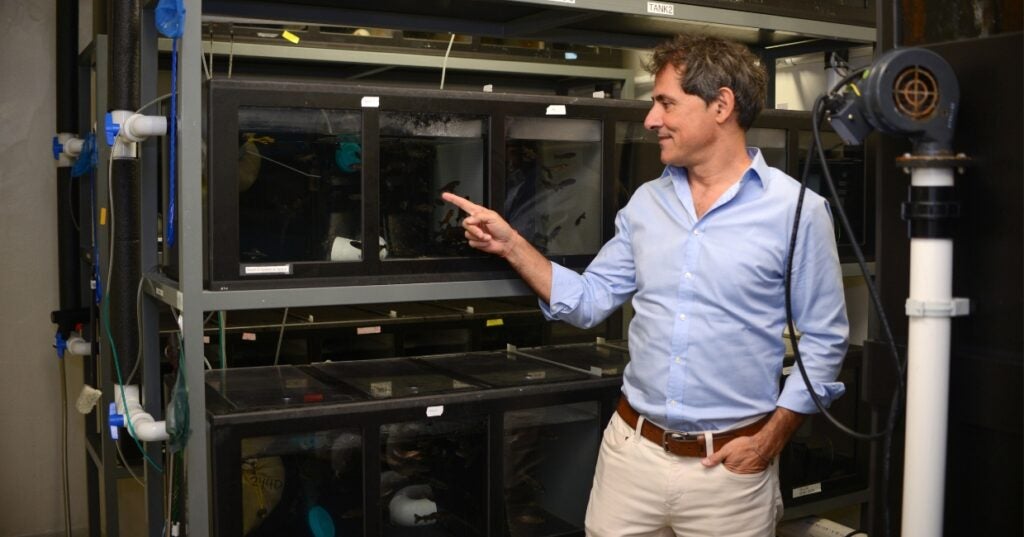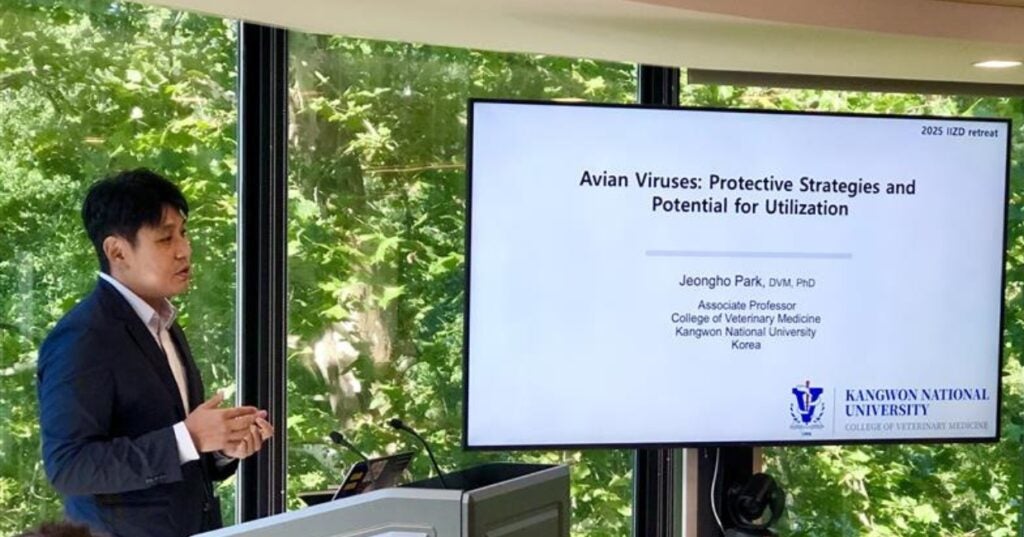Penn Vet Announces Third Annual Symposium on Zoonotic Disease Research

Featured speaker

The Institute for Infectious and Zoonotic Diseases (IIZD) at the University of Pennsylvania’s (Penn) School of Veterinary Medicine (Penn Vet) has announced the agenda for its 2025 IIZD Symposium. The event will bring together over a half-dozen researchers who will exchange scientific information on issues affecting the emergence, spread, and control of infectious disease.
The Symposium will open on Wednesday, March 19 at 6:00 PM with the Robert R. Marshak Public Lecture, featuring keynote speaker Peter Jay Hotez, MD, PhD, of the Baylor College of Medicine, who will present “Vaccines and Immunizations in a Time of Global Boiling and Anti-Science.” Penn’s Vice Provost for Climate Science, Policy, and Action, Michael Mann, PhD, will moderate the lecture. Mann’s and Hotez’s new book, Science Under Siege, is scheduled to be released in early 2025. The public lecture will be co-hosted by Penn’s Annenberg Public Policy Center.
The Symposium’s academic session will be held on Thursday, March 20 beginning at 9:00 AM featuring a panel of leading infectious disease experts:
- Christine Johnson, VMD, MPVM, PhD, University of California at Davis
- Marc Johnson, PhD, University of Missouri
- Erin Mordecai, PhD, Stanford University
- Salvador Almagro Moreno, PhD, St. Jude Children’s Research Hospital
- Bill Petri, MD, PhD, University of Virginia
- Jürgen Richt, DVM, PhD, Kansas State University
- Mark Wilber, PhD, University of Tennessee
- Penn’s Martin and Pamela Winter Infectious Disease Fellows Raegan Petch, Daana Roach, and Helen Stillwater will also be presenting.
Related News

Behind the Breakthroughs: J. Oriol Sunyer
J. Oriol Sunyer explores how studying the evolution of the immune system reveals surprising connections between fish and human immunity, and what these discoveries could mean for the development of…

Penn Vet’s Institute for Infectious and Zoonotic Diseases Hosts Second Annual Research Retreat
The University of Pennsylvania (Penn) School of Veterinary Medicine’s (Penn Vet) Institute for Infectious and Zoonotic Diseases (IIZD) hosted its annual Faculty Research Retreat on September 3 at the Brandywine…

A New Study from Penn Vet Reveals an Unsung Immune Defender as a Key Guardian of Gut Health and Metabolism
A pioneering new study published in Nature Microbiology, led by Oriol Sunyer, PhD, and a team of researchers at Penn Vet and the University of New Mexico, have uncovered a…
About Penn Vet
Ranked among the top ten veterinary schools worldwide, the University of Pennsylvania School of Veterinary Medicine (Penn Vet) is a global leader in veterinary education, research, and clinical care. Founded in 1884, Penn Vet is the first veterinary school developed in association with a medical school. The school is a proud member of the One Health initiative, linking human, animal, and environmental health.
Penn Vet serves a diverse population of animals at its two campuses, which include extensive diagnostic and research laboratories. Ryan Hospital in Philadelphia provides care for dogs, cats, and other domestic/companion animals, handling more than 30,000 patient visits a year. New Bolton Center, Penn Vet’s large-animal hospital on nearly 700 acres in rural Kennett Square, PA, cares for horses and livestock/farm animals. The hospital handles more than 6,300 patient visits a year, while our Field Services have gone out on more than 5,500 farm service calls, treating some 22,400 patients at local farms. In addition, New Bolton Center’s campus includes a swine center, working dairy, and poultry unit that provide valuable research for the agriculture industry.
